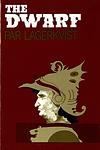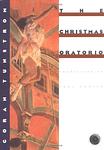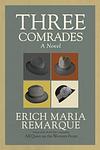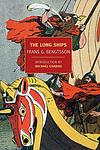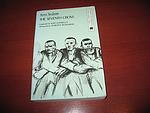The Greatest Swedish, Mexican, German "Fiction" Books Since 1900
Click to learn how this list is calculated.
This list represents a comprehensive and trusted collection of the greatest books. Developed through a specialized algorithm, it brings together 305 'best of' book lists to form a definitive guide to the world's most acclaimed books. For those interested in how these books are chosen, additional details can be found on the rankings page.
Genres
Countries
Date Range
Reading Statistics
Click the button below to see how many of these books you've read!
Download
If you're interested in downloading this list as a CSV file for use in a spreadsheet application, you can easily do so by clicking the button below. Please note that to ensure a manageable file size and faster download, the CSV will include details for only the first 500 books.
Download-
26. The Rings of Saturn by W. G. Sebald
"The Rings of Saturn" is a richly detailed travelogue that follows the narrator's journey along the coast of Suffolk, England. The narrative weaves together history, literature, and personal anecdotes, exploring topics as diverse as the decline of the herring industry, the horrors of colonialism in the Congo, and the life of philosopher Sir Thomas Browne. The book is characterized by its melancholic tone, its digressive style, and its meditative reflections on memory, time, and decay.
The 1004th Greatest Book of All Time -
27. The Dwarf by Par Lagerkvist
"The Dwarf" is a dark, philosophical novel set in the Italian Renaissance, narrated by a malevolent court dwarf who serves a prince. The dwarf is a symbol for the darker side of humanity, embodying all the malice, deceit, and manipulation that one can possess. His actions and viewpoint provide a cynical commentary on human nature and the moral complexities of power, war, and love. The novel explores themes of good and evil, faith and doubt, and the destructive side of human nature.
The 1024th Greatest Book of All Time -
28. The Underdogs by Mariano Azuela
"The Underdogs" is a novel set during the Mexican Revolution, depicting the conflict from the perspective of the peasants who fought in it. The story follows the journey of a poor, illiterate Indian named Demetrio Macias, who becomes a reluctant leader in the rebellion against the federal government. The narrative explores the brutality and chaos of war, the corruption of power, and the often futile nature of rebellion, painting a grim picture of the human cost of revolution.
The 1036th Greatest Book of All Time -
29. The Christmas Oratorio by Göran Tunström
"The Christmas Oratorio" is a poignant story set in a small Swedish town, revolving around a boy who loses his mother and his relationship with his silent, grieving father. The narrative is deeply embedded in music, specifically Bach's Christmas Oratorio, which becomes a source of solace for the boy. The tale is a rich tapestry of love, loss, and the healing power of music, exploring the deep emotional bonds between father and son, and the transformative power of art.
The 1082nd Greatest Book of All Time -
30. The Duino Elegies by Rainer Maria Rilke
"The Duino Elegies" is a collection of ten elegies that delve into the complexities of human existence, exploring themes of love, death, time, God, and the nature of reality. The author uses vivid and often unsettling imagery to convey a sense of the profound beauty and pain inherent in the human experience. The elegies are named after the castle of Duino, where the author began writing them, and they are renowned for their introspective depth and philosophical insight.
The 1094th Greatest Book of All Time -
31. The Lost Honour of Katharina Blum by Heinrich Böll
"The Lost Honour of Katharina Blum" is a story about a young woman who becomes the target of a media smear campaign after she falls in love with a man who is suspected of being a political radical. The media's relentless invasion of her privacy and the negative portrayal of her character lead to tragic consequences, highlighting the destructive power of sensationalist journalism. The novel is also a critique of the political climate in Germany during the 1970s.
The 1120th Greatest Book of All Time -
32. The Labyrinth of Solitude by Octavio Paz
This book is a profound and vivid exploration of Mexico's character, culture, and identity. The author delves into Mexico's history, politics, and psyche, examining the country's deep solitude and its impact on the national character. The book provides a comprehensive analysis of Mexican society, its myths, symbols, and rituals, offering a deep understanding of the Mexican people's unique way of perceiving the world. It also discusses the influence of the United States on Mexico and the complex relationship between the two countries.
The 1131st Greatest Book of All Time -
33. The Emigrants by Winfried Georg Sebald
"The Emigrants" is a novel that explores the experiences and memories of four different emigrants, each with a unique and complex history. The narrative primarily focuses on the psychological impact of displacement and the haunting nature of the past. The author delves deep into their lives, revealing their struggles with identity, loss, and the persistent influence of their roots. The narrative is interwoven with historical events, photographs, and other documents, creating a rich tapestry that blurs the line between fact and fiction.
The 1230th Greatest Book of All Time -
34. Faceless Killers by Henning Mankell
In this thrilling crime novel, an elderly farmer and his wife are brutally murdered and the only clue is the wife's dying word: "foreign." This sets off a series of events that involves a dedicated detective who must solve the crime while dealing with his own personal problems. The investigation becomes even more complex when the press catches wind of the dying word, sparking a wave of xenophobia in the community. The detective must navigate through the fear and prejudice to find the truth and bring the killers to justice.
The 1298th Greatest Book of All Time -
35. Karlson On The Roof by Astrid Lindgren
The book revolves around the adventures of a mischievous, self-confident man named Karlson who lives in a small house on the roof of an apartment building. He befriends a young boy named Smidge, who lives in the building below. Together, they embark on various escapades filled with fun and humor, often involving Karlson's quirky inventions and his love for tasty treats. Despite the skepticism of adults, the bond between Karlson and Smidge grows, showcasing a world where the fantastical and the everyday merge through the eyes of a child and his peculiar, flying friend.
The 1311th Greatest Book of All Time -
36. The Laughing Policeman by Maj Sjöwall, Per Wahlöö
In this gripping crime novel, a mass shooting on a bus in Stockholm leaves eight people dead, including a police officer. Inspector Martin Beck and his team are assigned to solve the case, but as they delve deeper, they uncover a complex web of corruption and deceit within the police force. With time running out, Beck must navigate through a labyrinth of clues and personal vendettas to catch the laughing policeman responsible for this heinous act.
The 1356th Greatest Book of All Time -
37. A Legacy by Sybille Bedford
"A Legacy" is a historical novel that captures the social and political turmoil of early 20th century Germany through the eyes of its protagonist. The story follows a young woman who hails from two distinct families, one being a wealthy Jewish family from Berlin and the other, an aristocratic Catholic family from rural Germany. The narrative provides a detailed account of the protagonist's life, her family's eccentricities, and the eventual downfall of her families amidst the backdrop of the First World War and the Weimar Republic.
The 1374th Greatest Book of All Time -
38. The German Lesson by Siegfried Lenz
"The German Lesson" is a vivid exploration of the moral and cultural conflicts of World War II, set in a small German village. The story is narrated by a young boy who is tasked by his school teacher with an assignment to write an essay on "The Joys of Duty." As his father, a local police officer, is assigned the duty of preventing a popular local artist from painting, the boy finds himself torn between his father's rigid adherence to duty and his own growing appreciation for art and individual expression. The narrative grapples with themes of duty, obedience, and the power of art, providing a thoughtful examination of life under the Nazi regime.
The 1386th Greatest Book of All Time -
39. Cartucho And My Mother's Hands by Nellie Campobello
"Cartucho And My Mother's Hands" is a poignant collection of vignettes that offer a child's perspective on the Mexican Revolution. Through a series of short, vivid sketches, the narrative captures the brutality and humanity of the conflict as witnessed by the young protagonist. The work is both a personal memoir and a tribute to the resilience of women, particularly the author's mother, whose strength and tenderness are symbolized by her hands. The book blends the innocence of childhood with the harsh realities of war, providing a unique and emotionally resonant account of historical events that shaped Mexico's national identity.
The 1635th Greatest Book of All Time -
40. Demian by Hermann Hesse
The novel follows the life of a young man, Emil Sinclair, from childhood to adulthood, as he navigates the duality of his nature and the societal expectations of his time. He is influenced by a charismatic and intellectual peer, Max Demian, who introduces him to the concept of the world not as a dichotomy of good and evil, but as a unified whole. This leads Sinclair on a journey of self-discovery and spiritual enlightenment, exploring themes of identity, morality, and the subconscious. The narrative is heavily influenced by the philosophies of Carl Jung and the Gnostic tradition.
The 1644th Greatest Book of All Time -
41. Simon and the Oaks by Marianne Fredriksson
"Simon and the Oaks" is a poignant tale set against the backdrop of World War II, depicting the life of a young Swedish boy, Simon, who comes from a working-class family but dreams of a world beyond his own. His life changes when he befriends Isak, a boy from a wealthy Jewish family fleeing from Nazi Germany. The book explores their friendship, the stark contrast between their worlds, their shared love for literature and music, and the impact of war on their lives. It also delves into themes of identity, love, loss, and the enduring power of human spirit.
The 1645th Greatest Book of All Time -
42. Three Comrades by Erich Maria Remarque
Set in the interwar period in Germany, the novel revolves around the deep bond of friendship between three World War I veterans struggling to adapt to civilian life amidst the economic and social turmoil of Weimar Republic. The trio copes with their trauma and disillusionment by sticking together and seeking solace in their shared experiences. Their camaraderie is further enriched and complicated by the arrival of a beautiful, spirited woman, who becomes intimately entwined with their lives. As they navigate the challenges of love, loss, and the scars of war, the story poignantly captures the fragility of hope and the enduring spirit of friendship against the backdrop of a society on the brink of monumental change.
The 1662nd Greatest Book of All Time -
43. Jacob the Liar by Jurek Becker
Set during the Holocaust in a Jewish ghetto in Poland, the novel revolves around a man named Jacob who fabricates the news of the Russian Army's advancement to uplift the spirits of his fellow prisoners. However, as his lies gain traction, they become a beacon of hope for the desperate people in the ghetto, leading to unforeseen consequences. The book explores themes of hope, despair, and the power of words, ultimately questioning the morality of lying for a greater good.
The 1667th Greatest Book of All Time -
44. The Long Ships by Frans G. Bengtsson
"The Long Ships" is a historical fiction novel centering around the Viking era. The story follows the adventures of a young Viking named Red Orm who is kidnapped by other Vikings, becomes a slave, then a chieftain's henchman, a merchant, explorer, and a soldier. His adventures take him from his native Sweden to Spain, England, Denmark, and Ireland. The novel explores the political, religious, and cultural landscapes of the era, providing a detailed and engaging portrayal of the Viking world.
The 1669th Greatest Book of All Time -
45. Narcissus And Goldmund by Hermann Hesse
The novel explores the complex friendship between two diametrically opposed characters: one, a cerebral and ascetic monk dedicated to a life of contemplation and spiritual discipline, and the other, a passionate and sensual artist driven by the pursuit of beauty and worldly experiences. Set against the backdrop of medieval Europe, the story delves into themes of duality, the search for meaning, and the reconciliation of the spiritual with the carnal. As the two men journey through their lives, their intertwined paths lead them to profound insights about the nature of human existence, creativity, and the eternal struggle between the intellect and the senses.
The 1679th Greatest Book of All Time -
46. The Emigrants by Vilhelm Moberg
"The Emigrants" is a historical novel that follows the journey of a Swedish farming family who, driven by poverty and religious persecution, decide to emigrate to America in the mid-19th century. The narrative explores their struggles and hardships, from the decision to leave their homeland, the arduous journey across the Atlantic, to their eventual settlement in Minnesota. The book provides a profound and realistic depiction of the immigrant experience, highlighting the courage, determination, and resilience of the emigrants.
The 1722nd Greatest Book of All Time -
47. Professor Unrat by Heinrich Mann
The novel is a social critique of bourgeois society in Germany during the Wilhelmine period, as seen through the life of an authoritarian and morally rigid school teacher. The protagonist becomes infatuated with a cabaret dancer, leading him to abandon his duties and societal norms, and eventually descend into madness. The book explores themes of obsession, social class, and the destructive power of repressed desire.
The 1725th Greatest Book of All Time -
48. Mother Courage and Her Children by Bertolt Brecht
Set against the backdrop of the Thirty Years' War, the book tells the story of a canteen woman, Mother Courage, who pulls her cart with her three children across war-torn Europe. It explores her struggles and survival tactics as she tries to profit from the war while keeping her children safe. The narrative is a profound critique of war and its consequences, highlighting the human cost of conflict and the often futile search for prosperity and security in a chaotic world.
The 1735th Greatest Book of All Time -
49. The Resistible Rise of Arturo Ui by Bertolt Brecht
"The Resistible Rise of Arturo Ui" is a satirical play that uses the rise of a fictional 1930s Chicago mobster, Arturo Ui, to parallel the rise of Adolf Hitler in Nazi Germany. The narrative is a critique of those who allowed Hitler to come to power, emphasizing that his rise was indeed resistible. The play explores themes of power, corruption, manipulation, and the dangers of complacency, showcasing the destructive potential of unchecked ambition and the failure of society to prevent the ascent of dangerous individuals.
The 1739th Greatest Book of All Time -
50. The Seventh Cross by Anna Seghers
"The Seventh Cross" is a gripping tale set in Nazi Germany that revolves around seven men who escape from a concentration camp. The camp commandant erects seven crosses, vowing to hang each escapee on their return. The story primarily follows one escapee, who manages to evade capture and make his way back to his hometown. The narrative explores the psychological terror imposed by the Nazi regime, the resilience of human spirit, and the subtle forms of resistance within the German populace.
The 1751st Greatest Book of All Time
Reading Statistics
Click the button below to see how many of these books you've read!
Download
If you're interested in downloading this list as a CSV file for use in a spreadsheet application, you can easily do so by clicking the button below. Please note that to ensure a manageable file size and faster download, the CSV will include details for only the first 500 books.
Download
